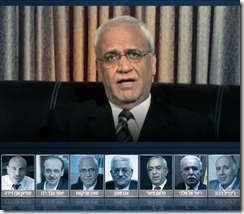You’d think that the most important question in our lives would get sufficient attention and introspection by us all. Alas, as we live every day with little distractions, many people never ask themselves, “why am I here?”, “what is my purpose?”
People follow career paths and spend decades working without every asking themselves, “is this truly what makes me the happiest?” “Is this how I can best change the world and make it a little bit better?”
When asked for career advice, my only two pieces I tend to give is, “whatever you do, give it your best and your everything”, and “make sure you ask yourself what is your passion, what moves you, and then try to find a way for your work to be your passion.”
Think about it. Beyond sleeping, your work life may be what you dedicate the most hours to in your life. Why not make it something you truly enjoy and are passionate about?
The only problem with the above advice is that you may become so passionate that sometimes you become a workaholic and do not sufficiently appreciate the need to balance your life with other enjoyments like family and friends. But may that be the problem you’ll have – that you enjoy your job so much that doing it is a hobby, a passion – your favorite thing to do.
More often, when I ask applicants about what is important to them, what gives them meaning, they draw blanks.
This column from David Brooks can be very useful for people who want to think about this issue.
David Brooks maintains that 24-year olds may not be capable of answering the big questions about their purpose in life. I find that is often not true, that even far younger people can find some level of passion when they take the time to think about it. It doesn’t mean that every college graduate must know whether solving the Arab-Israeli conflict, or reversing global warming, or eradicating poverty is what most gives them a sense of fulfillment and what they most consider to be a priority. For some it may just be directional – helping people feel better, giving structure to thoughts, organizing people, creating things, etc. And each of these can give one a sense of the direction where they want to start discovering opportunities.
Certainly when evaluating options, peoples’ circumstances will determine at least some of their vantage points and realistic options, as Brooks suggests. But I think everyone has the right to take a couple hours to do some hard thinking and go BEYOND what may seem like limiting circumstances or options. For it is in deep introspection that some will find purpose outside of their common circles, and, once they find it, will move mountains to journey in that direction.
For, just like purpose gives us fulfillment and satisfaction, it also gives us the drive and energy for maximum impact and accomplishment.
Purpose, then, is not about the world we live in, or about the person we are, but about the intersection between them and the energy that pours out when we find ours.
[Read more →]















![clip_image001[4] clip_image001[4]](http://blog.peaceworks.net/wp-content/uploads/2010/08/clip-image0014-thumb.jpg)
![clip_image001[6] clip_image001[6]](http://blog.peaceworks.net/wp-content/uploads/2010/08/clip-image0016-thumb.jpg)